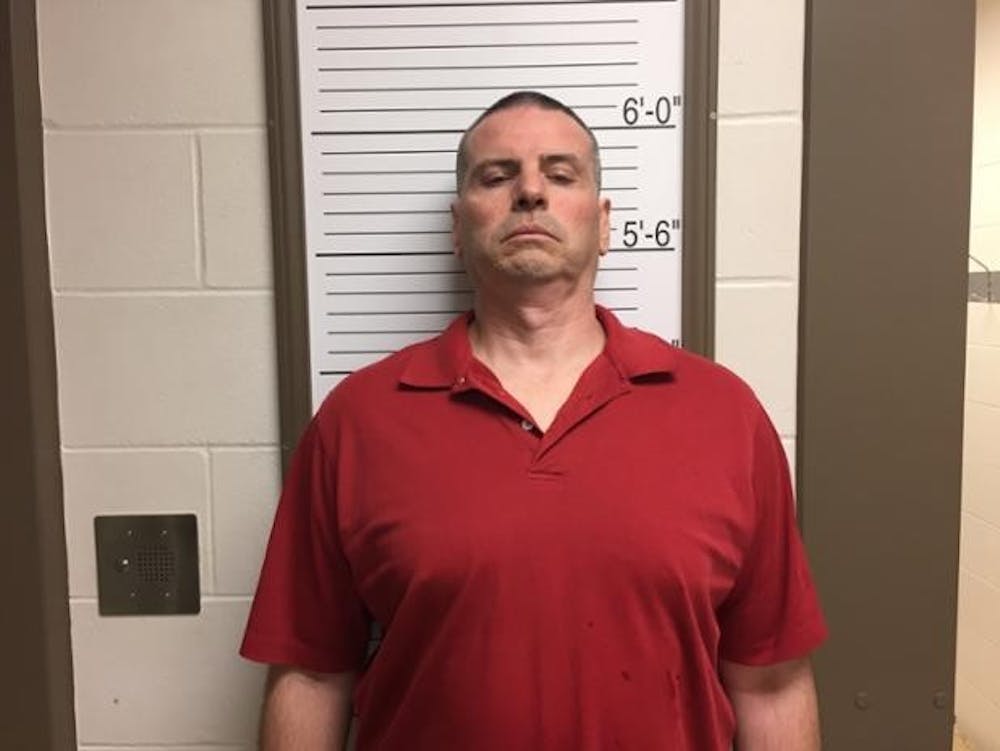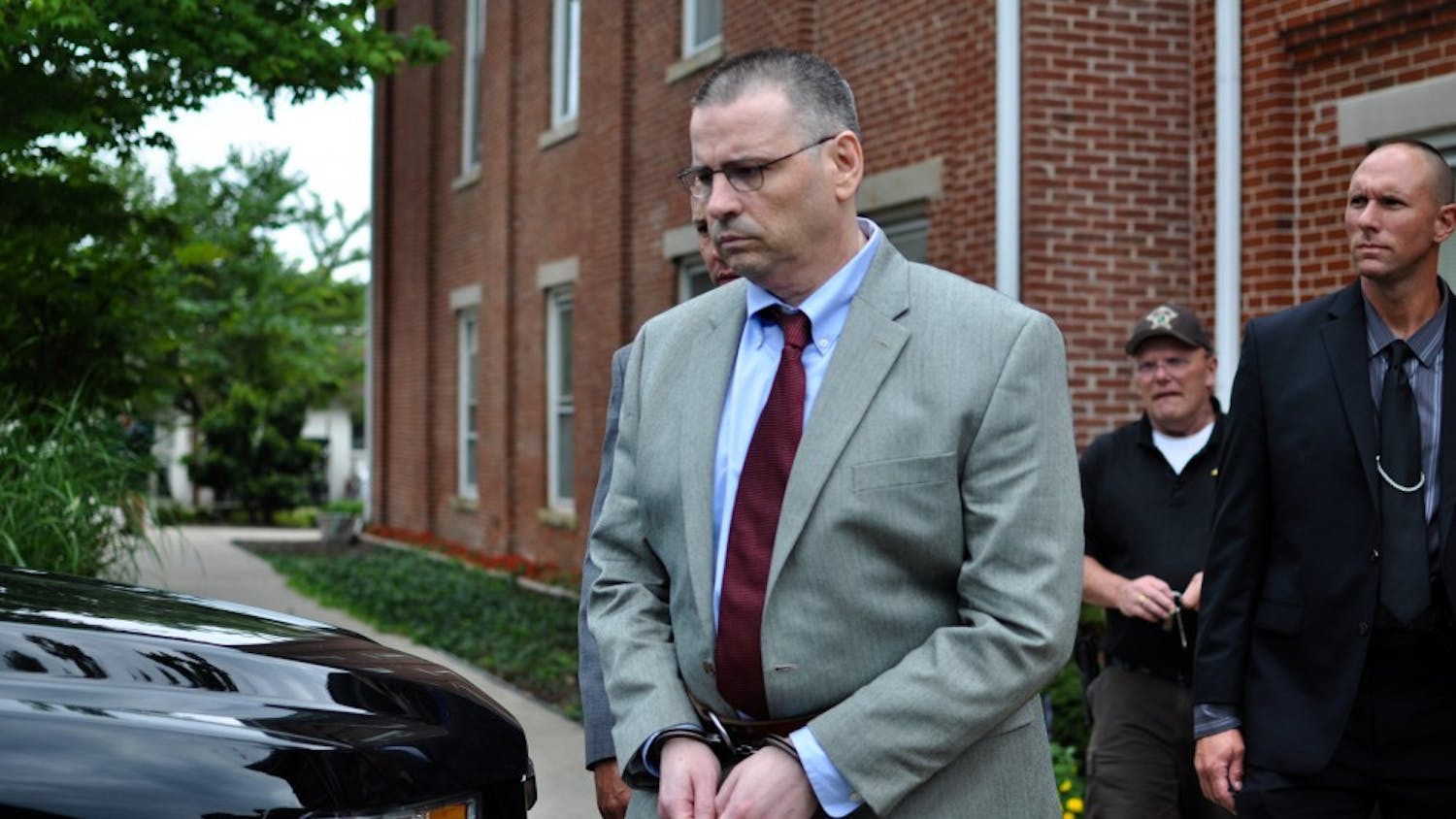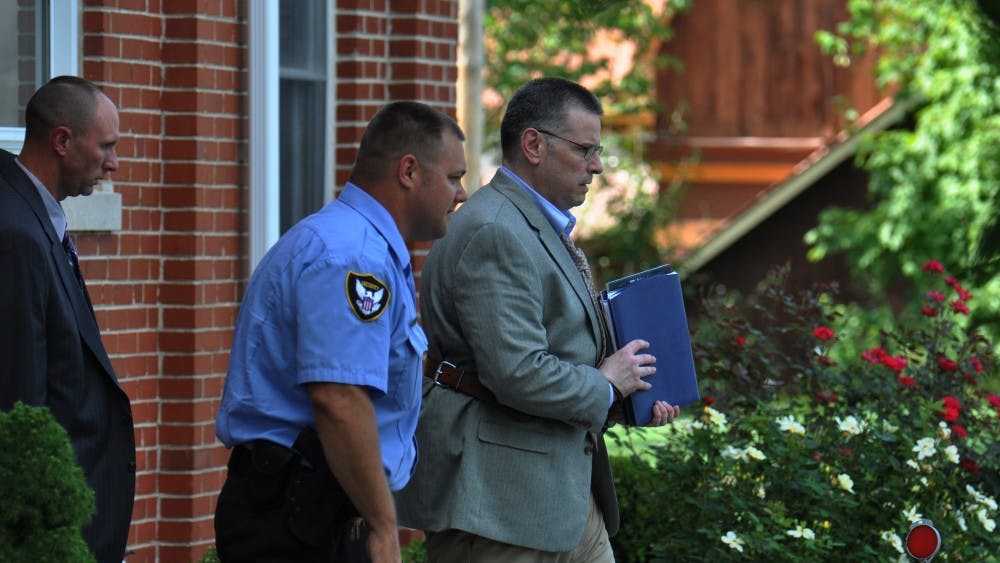A judge is deciding whether or not to close a hearing which will decide if Daniel Messel's criminal history can be presented in his trial for the murder of IU senior Hannah Wilson.
Both Brown County Prosecutor Ted Adams and Messel’s defense attorney Dorie Maryan agreed and argued for the hearing to be closed this morning. At what seemed to be a minor hearing in the long span of a jury trial, Wilson's family were the only ones to attend, aside from attorneys and law enforcement.
Earlier this month, the prosecution filed a habitual offender petition to allow Messel’s past criminal offenses to be allowed as evidence in his trial for the murder of Wilson.
Among Messel's previous crimes are battery with a deadly weapon, confining and assaulting a woman in her apartment, driving under the influence, criminal mischief, resisting law enforcement and disorderly conduct.
If allowed in trial, Messel’s history could increase his sentence if he is convicted.
Indiana trial court rules only allow for information regarding a defendant’s criminal history to be used in rare circumstances. The prosecution must prove a pattern or connection between the current case and defendant’s past in order for it to be allowed in trial.
Before the hearing, Adams and Maryan informally discussed the oddity that they both agreed the hearing should be closed and that they were still having a hearing to decide on the matter.
Though both Adams and Maryan requested for this hearing to be closed to the public, they requested the trial be closed for different reasons.
Adams argued for the hearing to be closed to avoid tainting the jury pool and causing a change of venue down the line. He also said he believes this hearing will bring out details that could cause harm.
“This is going to be a long and intense hearing,” Adams said. “We want to protect the witnesses.”
Judge Judith Stewart questioned whether or not a possible change of venue and protecting witnesses that were already scheduled to take the stand at the trial had overriding interest, which is when the court has an important reason to deny protected rights. This typically happens when two or more rights are conflicting and the court must decide which is the primary right.
“I’m not sure I find the risk of changing venue an overriding interest,” Stewart said. “I think what’s more overriding is Mr. Messel’s right to a fair trial.”
Maryan argued the details revealed from his previous charges regard Messel’s character and therefore can unfairly change the opinion of the jury pool, even if the information is ruled unacceptable for the trial.
Stewart is wary of making the hearing closed and requested the defense and prosecution to consider other options. She suggested picking the jury panel and advising them to stay away from media coverage and then having the hearing open just before the trial.
After a few minutes of thought, Adams suggested keeping the hearing closed and if the information is ruled admissible, to make a transcript of the hearing public, and if not, to keep it closed.
With no outside objections and both sides arguing for it to be closed, Stewart is left to decide whether or not to close the hearing. She hasn’t ruled out any possibilities suggested and has no deadline to make a decision.
“It is such a fundamental principle that criminal records be open that it is difficult to close them,” Stewart said. “… but in criminal cases with information like this it’s sometimes needed for a fair trial. I will take it under advisement.”






